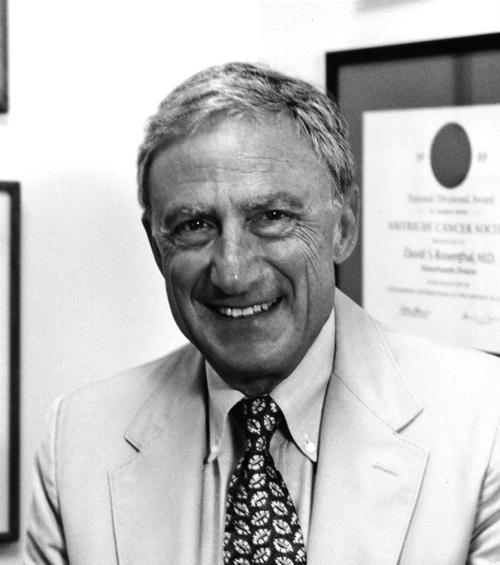
News
Summers Will Not Finish Semester of Teaching as Harvard Investigates Epstein Ties

News
Harvard College Students Report Favoring Divestment from Israel in HUA Survey

News
‘He Should Resign’: Harvard Undergrads Take Hard Line Against Summers Over Epstein Scandal

News
Harvard To Launch New Investigation Into Epstein’s Ties to Summers, Other University Affiliates

News
Harvard Students To Vote on Divestment From Israel in Inaugural HUA Election Survey
David S. Rosenthal
A friend’s death inspired Harvard health services director to pursue medicine

Fifty years after graduating, David S. Rosenthal ’59 still spends his weekdays in the Square, decorates his walls with Harvard posters, and regularly eats lunch with College students.
But now instead of finishing his math problem sets, he bides his time in the Holyoke Center working as the director of Harvard University Health Services.
When Rosenthal first moved into Harvard Yard, he was unsure if he wanted to be a doctor at all. It would take the death of a close friend to convince Rosenthal to pursue a career in medicine.
Instead, upon moving into his Thayer Hall residence, Rosenthal imagined himself becoming a teacher after graduation.
Sylvester Sterioff, Jr. ’59, Rosenthal’s freshman year roommate—who is now a doctor—does not recall talking about medicine with Rosenthal while the two lived together in Thayer.
Instead, he recalls Rosenthal’s excellence in academics and in track as a hurdler, and describes Rosenthal as an “extremely good student [who was] very serious about his education.”
As Rosenthal took and enjoyed premed courses like Organic Chemistry, he still found it hard to let go of the idea of becoming a teacher.
His father was a high school science teacher, and Rosenthal was tempted to follow in his father’s footsteps.
But in Rosenthal’s junior year, his close friend William L. Dowling, Jr. ’59 died of leukemia.
Dowling and Rosenthal lived one entryway apart in Dunster House.
“In retrospect, it was one of the most significant events that probably focused me on what I wanted to do in life,” Rosenthal said of Dowling’s death.
The experience inspired Rosenthal to pursue medicine. He even chose to specialize in hematology, the study of blood diseases like leukemia.
Rosenthal always stayed close to Harvard. He attended Tufts Medical School, worked at hospitals in the Boston area, and then, in 1982, returned to Harvard to teach at the Medical School.
Barbara J. McNeil, head of the department of health care policy at the Medical School, was a member of the search committee that selected Rosenthal as director of UHS.
“The attractive features about him when we hired him certainly worked out to be true,” McNeil said. “He’s an excellent doctor clinically, he’s a very caring person, he has great communication skills, and he’s very interested in the students.”
As director of UHS, Rosenthal oversees its daily workings and must also respond quickly to epidemics.
In April, Rosenthal was involved in closing the Harvard School of Dental Medicine after a dental student was suspected to have swine flu.
“He’s been able to do so many things as a physician, all the things that he’s really good at,” Rosenthal’s daughter Laura Hrasky said.
Rosenthal’s career also reaches far beyond Harvard’s walls.
He was the President of the American Cancer Society in 1998 and remains involved with the organization.
Rosenthal has also been the medical director of the Zakim Center for Integrated Therapies at the Dana-Farber Cancer Institute.
Despite his involvement in other institutions, friends and family say Rosenthal’s passion for Harvard stands out.
Hrasky recalls attending Harvard sports games during her childhood and says her father speaks about the University often.
In Rosenthal’s office, two Harvard posters hang on the walls, and he keeps his yearbook easily accessible on an office bookshelf.
As he flips through the yearbook, he murmurs, “Good memories.”
—Staff writer Danielle J. Kolin can be reached at dkolin@fas.harvard.edu.
Want to keep up with breaking news? Subscribe to our email newsletter.
